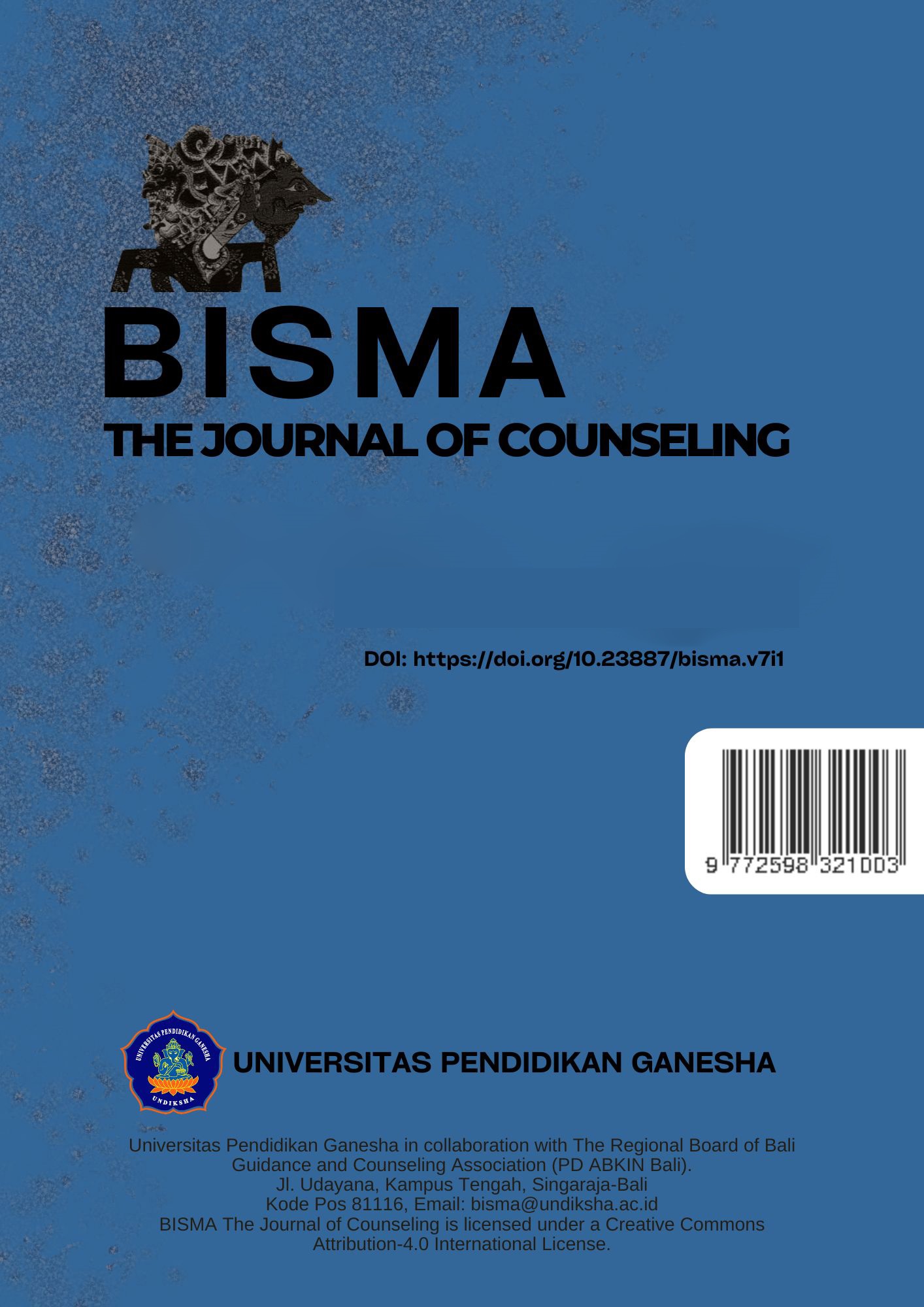Psychological Well-Being Intervention for Underprivileged Students: Evidence from Rational Emotive Behavior Therapy Group Counseling
DOI:
https://doi.org/10.23887/bisma.v8i3.86668Keywords:
Psychological Well-Being , Underprivileged Students, Rational Emotive Behavior TherapyAbstract
Students from economically disadvantaged families often face challenges related to low psychological well-being, which can negatively impact their emotional welfare and social functioning. This study aims to analyze the effectiveness of group counseling based on Rational Emotive Behavior Therapy (REBT) in enhancing the psychological well-being of students from underprivileged families. The research adopts a quantitative method with a quasi-experimental design. The sample consists of 20 students with low psychological well-being, divided into an experimental group (10 students) and a control group (10 students). The sampling technique applied was purposive random sampling, and data were analyzed using the Wilcoxon Signed Rank Test. The findings reveal that group counseling with the REBT approach effectively improves students' psychological well-being. This effectiveness is evidenced by a significantly greater increase in psychological well-being scores in the experimental group compared to the control group. This study concludes that group counseling based on the REBT approach is an effective intervention strategy to enhance the psychological well-being of students from economically disadvantaged families.
Published
Issue
Section
License
Copyright (c) 2024 Rachman Hakim, Netrawati

This work is licensed under a Creative Commons Attribution 4.0 International License.








